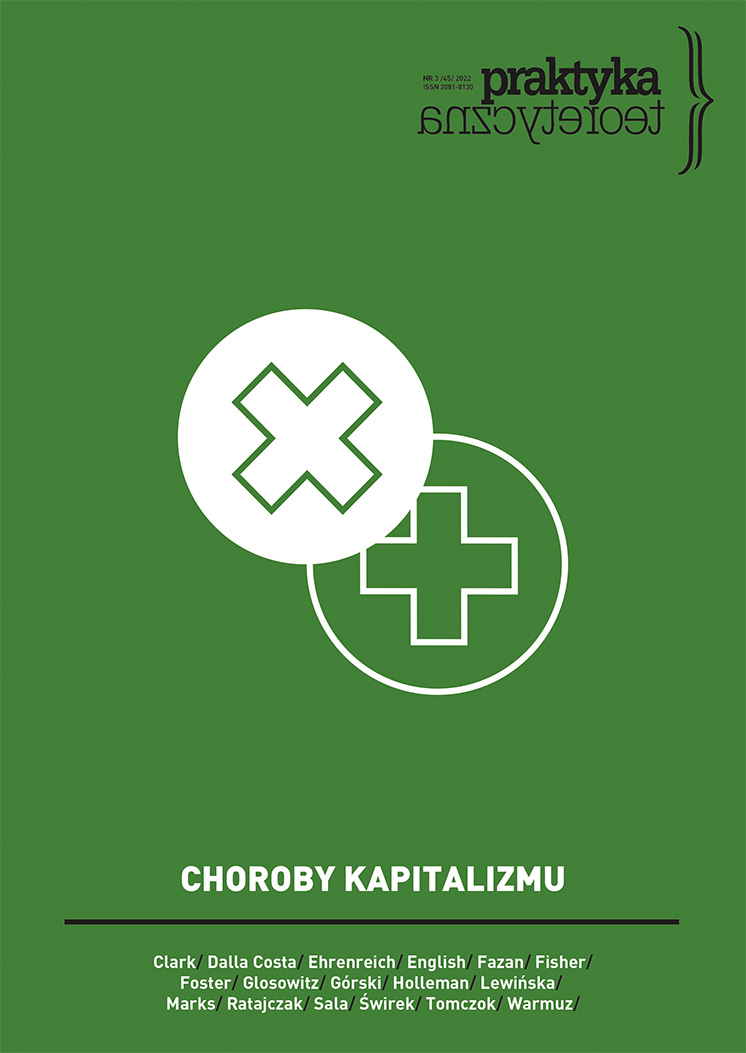

Articles

The article discusses the works of two Polish writers of the youngest generation – Tomasz Bąk and Olga Hund – in terms of what role humor plays in the descriptions of mental illnesses and disorders they present. An essential assumption for this paper is that recent Polish literature is developing a model of narratives about mental illnesses and disorders that clearly departs from the conventions and traditions of presenting the aforementioned as a subjective confession of an individual’s struggles or creating a cultural myth about a disturbed person as one who has insight into metaphysical spaces inaccessible to others. Instead, psychiatric narratives are framed in a non-individual context: social, economic, political. One strategy for moving away from confession and romanticizing illnesses and disorders is humor – in the article analyzed mainly through Sigmund Freud’s theory of tension release. The point of arrival of the analysis is an attempt to answer the question of the purpose of humorous textual strategies, by analyzing their community-forming (affiliative) and critical (aggressive) potential.